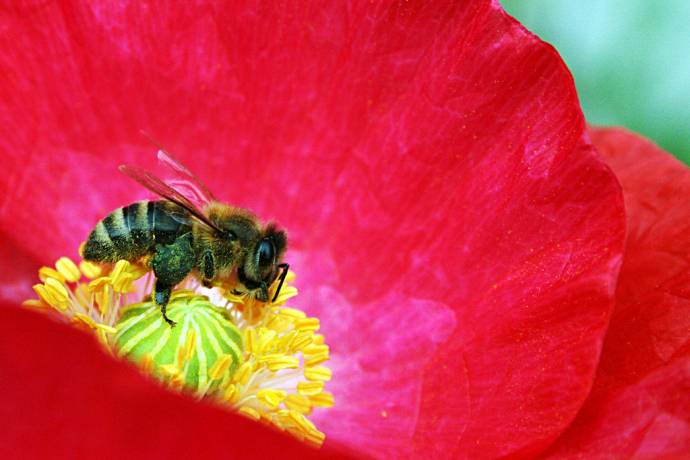Written by Sonja Merljak Zdovc, translated by JL Flanner
Po svetu so včeraj praznovali prvi svetovni dan čebel.
The first World Bee Day was celebrated yesterday.
Ta dan je še posebej pomemben za Slovenijo. Nastal je namreč na pobudo slovenskih čebelarjev.
This day is especially important for Slovenia. It was created on the initiative of Slovenian beekeepers.
Zakaj pa smo ga potrebovali?
Why did we need it?
In zakaj praznujemo svetovni dan čebel 20. maja?
And why are we celebrating the World Bee Day on May 20?
Na ta dan se je rodil Anton Janša. Velja za začetnika modernega čebelarstva in takrat slovenski čebelarji praznujejo svoj praznik.
On this day, Anton Janša was born. He is considered the pioneer of modern beekeeping, and Slovenian beekeepers celebrate their holiday on his birthday.
Čebelice izginjajo in pravijo, da mi izginjamo z njimi. Brez čebel ni opraševanja in brez opraševanja ni hrane, pravijo čebelarji.
The bees are disappearing and they say that we will disappear with them. Without bees there is no pollination, and no pollination means no food, say beekeepers.
Svetovni dan čebel je zato namenjen tudi ozaveščanju o tem, kako dragocene so in zakaj se moramo potruditi, da jih ohranimo.
Therefore, World Bee Day is also aimed at raising awareness about how valuable these insects are and why we need to work hard to keep them.
Ali veste, kaj lahko naredite zanje?
Do you know what you can do for them?
Čebelice imajo spomladi in poleti vse manj hrane. S sodobnim načinom kmetovanja, pravijo na Čebelarski zvezi Slovenije, izginjajo cvetoči travniki, na njivah prevladujejo pridelki ene vrste, tudi gozdov je vse manj.
Bees have less food in the spring and summer. The modern way of farming, say the Beekeeping Association of Slovenia, means that flowering meadows are disappearing, crops of one kind dominate the fields, and the forests are getting smaller.
Če na vrtovih posadimo medonosne rastline, pomagamo čebelam preživeti.
If we plant honey plants in the gardens, we can help the bees to survive.
In katere so medonosne rastline?
And what are the honey plants?
Med njimi so sončnice in sivka, zvončki, trobentice, žafrani, regrat, teloh in travne rože.
Among them are sunflower and lavender, snowdrops, primrose, crocus, dandelion, hellebores and grass flowers.
Čebelice pa imajo rade tudi sadno drevje, kostanj, lipo, javor, akacijo in gozdno podrast.
Bees also have fruit trees, chestnuts, lindens, maple, acacia and forest undergrowth.
Read more stories and improve your Slovene at Časoris.






